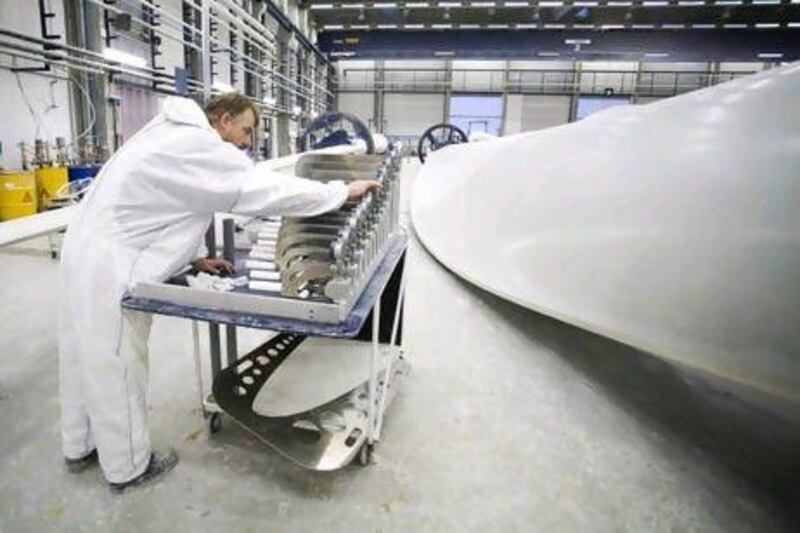The Danish wind turbine maker Vestas Wind Systems has not given up on the long-term future of wind power despite a disastrous third quarter last year in which the company closed five Scandinavian factories, cut 3,000 staff and lost €104 million (Dh509m) before tax.
"For the wind industry overall, 2009 was a very tough year in terms of new orders, and there has been a delayed impact on the industry in 2010," said Ditlev Engel, the company's president and chief executive, who was in Abu Dhabi yesterday. "But this is a long-term industry. If you look at the price of oil, it's obvious there have been tremendous changes over a short period of time."
In early 2008, record high oil prices spurred international investment in renewable energy development, but that declined sharply when crude slid to a fifth of its peak by the end of that year. Now that international oil prices are again approaching US$100 a barrel, renewable energy is once more on most oil consuming countries' agendas.
"The rising price of fossil fuels is a challenge," Dr Robin Niblett, the director of Chatham House, a UK international affairs institute, told the World Future Energy Summit in Abu Dhabi yesterday. "The uptake of renewables, the speed with which this takes place, is therefore a major priority."
Mr Engel, who was also attending the conference, said the trend towards firmer government policies on renewable energy development would help the wind sector, although it remained "important to differentiate between what people would like to do and what they can afford to do".
With stronger signals that governments were serious about reducing dependence on fossil fuels, however, the wind-power industry was set to flourish in future, he predicted.
"We understand the rules of the game. We know what to do," Mr Engel added.
In the short term, a positive sign for Vestas is that the firm is receiving recognition for innovations aimed at cutting the cost of wind power and extending the geographic range over which harnessing wind energy would be feasible.
Vestas has been nominated for the Zayed Future Energy Prize, to be awarded in Abu Dhabi this week, for its development of a wind turbine that works efficiently under low and medium wind conditions. Its V112 3-megawatt turbine "is designed to be easier to transport and install in sites where erecting a wind farm presents significant challenges," the company said.
The turbine has already won various accolades, including being named the "most innovative power technology of the year" at the Asian Power Awards in Singapore last November.
In recent years, the direction of wind power technology evolution has been towards ever larger turbines to capture economies of scale in remote high-wind environments such as the far offshore. Extending the technology's applications to lower-wind environments, however, could be just as important, said Mr Engel.
That trend could even make wind farms feasible in the UAE, a country that seldom experiences sustained high winds.
Mr Engel said Vestas was in talks with Masdar, the Abu Dhabi government clean energy flagship, over a potential collaboration on wind-power development, although no specific project was on the table.
Such a deal, if it came about, would extend an existing relationship between Vestas and Abu Dhabi. The Danish company supplied the emirate's first wind turbine, which still turns in the sea breezes on Sir Bani Yas Island.





